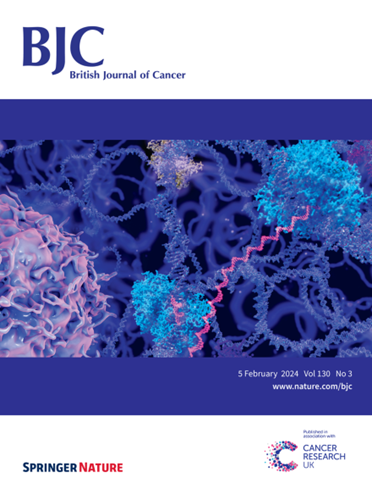Pro-survival roles for p21(Cip1/Waf1) in non-small cell lung cancer
IF 6.4
1区 医学
Q1 ONCOLOGY
引用次数: 0
Abstract
Quiescence is reversible proliferative arrest. Multiple mechanisms regulate quiescence that are not fully understood. High expression of the CDK inhibitor p21Cip1/Waf1 correlates with a poor prognosis in non-small cell lung cancer (NSCLC) and, in non-transformed cells, p21 promotes quiescence after replication stress. We tested whether NSCLC cells enter p21-dependent quiescence and if this is advantageous to NSCLC cells. Through analysis of patient data and quantitative, single-cell, timelapse imaging of genetically-engineered NSCLC reporter cell lines we investigated the role of p21 in NSCLC during normal proliferation and after chemotherapy. High p21 expression correlates with a poor prognosis in TP53 wild-type, but not TP53 mutant, NSCLC patients and TP53 wild-type NSCLC cells can enter p21-dependent quiescence, downstream of replication stress. Without p21, unrepaired DNA damage propagates into S-phase and cells display increased genomic instability. p21 expression confers survival advantages to TP53 wild-type NSCLC cells, during proliferation and after chemotherapy. p21 can promote tumour relapse by allowing recovery from both G1 and G2 arrests after chemotherapy. p21-dependent quiescence exists in TP53 wild-type NSCLC cells and provides survival advantages to these cells. Targeting p21 function in TP53 wild-type tumours could lead to better outcomes for chemotherapy treatment in NSCLC patients.

p21(Cip1/Waf1)在非小细胞肺癌中的促生存作用
背景:静止是可逆的增殖停止。调节静止的多种机制尚未完全了解。CDK抑制剂p21Cip1/Waf1的高表达与非小细胞肺癌(NSCLC)的不良预后相关,并且在非转化细胞中,p21促进复制应激后的静止。我们测试了NSCLC细胞是否进入p21依赖的静止状态,以及这是否对NSCLC细胞有利。方法:通过分析患者资料和基因工程NSCLC报告细胞系的定量、单细胞、时间间隔成像,研究p21在NSCLC正常增殖和化疗后的作用。结果:在TP53野生型患者中,p21高表达与预后不良相关,而TP53突变型患者和TP53野生型非小细胞肺癌细胞可进入p21依赖的静止状态,处于复制应激的下游。没有p21,未修复的DNA损伤传播到s期,细胞表现出增加的基因组不稳定性。p21的表达赋予TP53野生型NSCLC细胞在增殖和化疗后的生存优势。p21可以促进肿瘤复发,使化疗后G1和G2停止恢复。结论:TP53野生型非小细胞肺癌细胞中存在p21依赖性静止,并为这些细胞提供生存优势。靶向TP53野生型肿瘤中的p21功能可能会为非小细胞肺癌患者的化疗治疗带来更好的结果。
本文章由计算机程序翻译,如有差异,请以英文原文为准。
求助全文
约1分钟内获得全文
求助全文
来源期刊

British Journal of Cancer
医学-肿瘤学
CiteScore
15.10
自引率
1.10%
发文量
383
审稿时长
6 months
期刊介绍:
The British Journal of Cancer is one of the most-cited general cancer journals, publishing significant advances in translational and clinical cancer research.It also publishes high-quality reviews and thought-provoking comment on all aspects of cancer prevention,diagnosis and treatment.
 求助内容:
求助内容: 应助结果提醒方式:
应助结果提醒方式:


